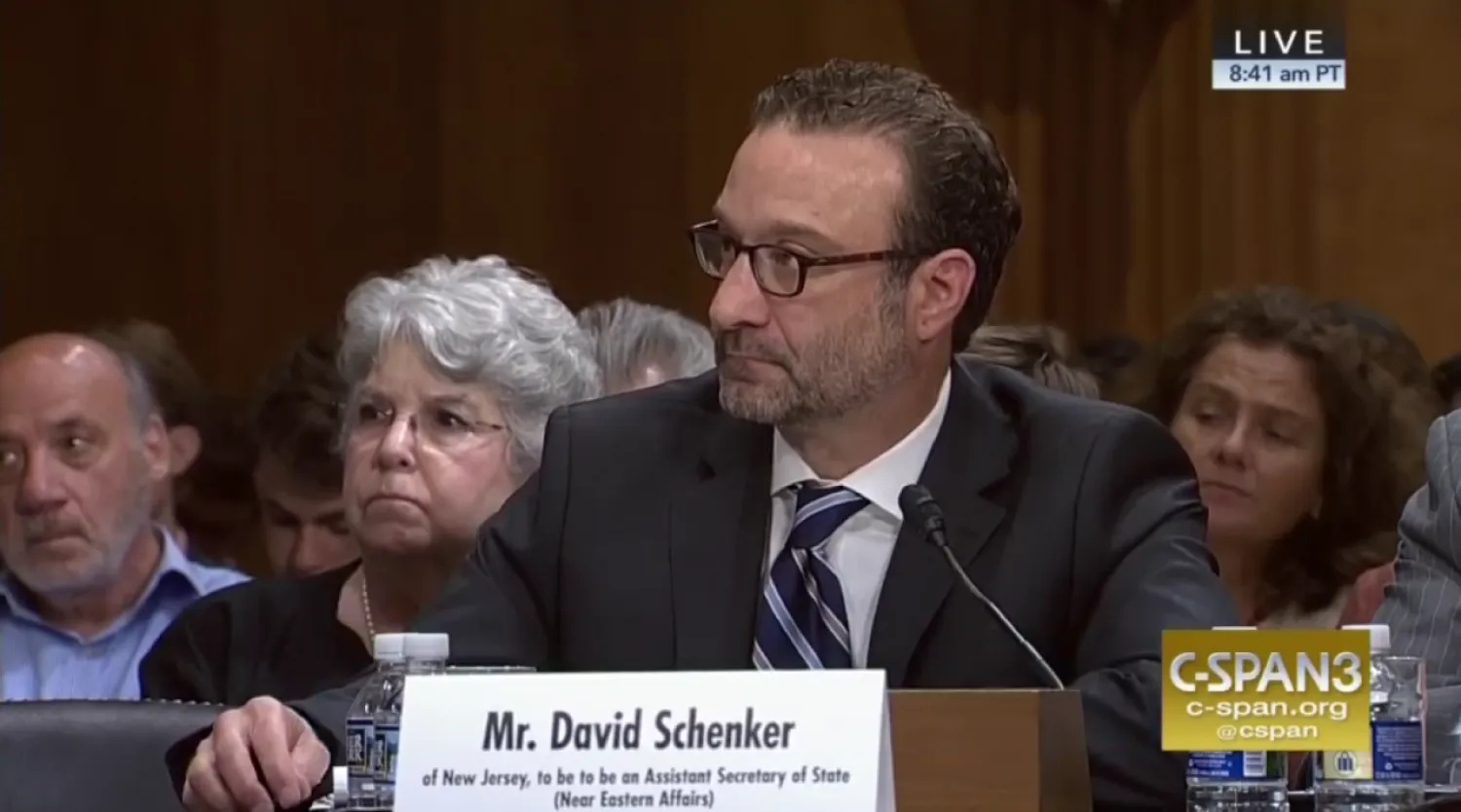The US embassy has informed senior Lebanese officials that the newly appointed Assistant Secretary of State for Near Eastern Affairs, David Schenker, would visit Beirut on September 12 to resume negotiations between Israel and Lebanon over the maritime border dispute.
Schenker was recently sworn in by US Secretary of State Mike Pompeo to facilitate the maritime border negotiations between the two countries, a process led by his predecessor Ambassador David Satterfield, who left the mission after being appointed Ambassador to Turkey.
Asharq Al-Awsat learned on Wednesday that Lebanese officials believe that the appointment of Schenker to resume the US role in solving the maritime border dispute is a sign on Pompeo’s eagerness for a demarcation without Israel flexing its muscles.
The appointment shows that Washington heeded President Michel Aoun’s requests for the negotiations to be held at the UN peacekeeping mission’s headquarters in south Lebanon’s Naqoura, in the presence of UN staff and the attendance of experts from both Lebanon and Israel.
Schenker was informed that Speaker Nabih Berri would discuss with him the need to demarcate both the maritime and land borders with Israel and that negotiations must resume from where they last stopped during Satterfield’s mediation, a diplomatic source told Asharq Al-Awsat.
The source said that the US Assistant Secretary for Near Eastern Affairs has no problem in shuttling back and forth between Beirut and Tel Aviv with a mission to bringing viewpoints closer.
“Schenker is a veteran diplomat who speaks Arabic and has several friends in Beirut and Tel Aviv,” the source said, adding that his mission should focus on convincing Israel to agree on demarcating both the maritime and land borders.









